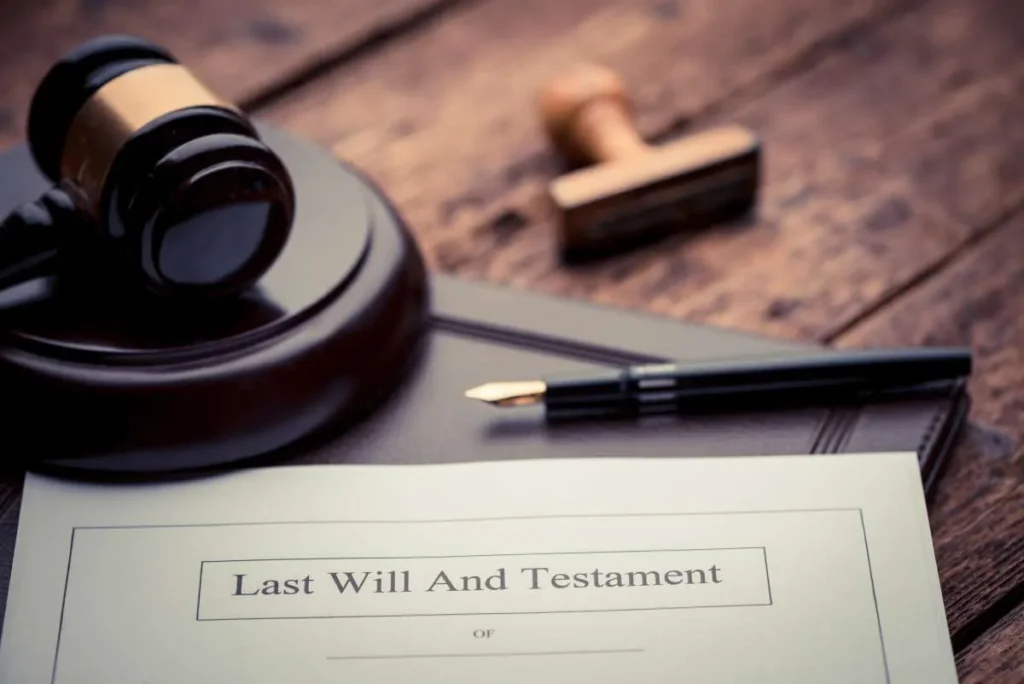If you’re handling an estate or managing probate litigation, you may eventually need to figure out how to get copies of probate documents in Texas. Whether you’re an executor trying to wrap up a loved one’s estate, a beneficiary monitoring the legal process, or a probate attorney preparing for court, having access to the correct probate records is essential. Yet for many, the process of getting those documents seems confusing or buried under red tape.
This comprehensive guide explains how to get copies of probate documents in Texas, from which offices handle these records to what steps you’ll need to follow. Along the way, we’ll answer common questions, clear up legal jargon, and share real-world scenarios that will help you avoid frustrating delays.

Why Probate Documents Matter in Texas
Probate documents aren’t just legal formalities. They are the paper trail of what happened with a deceased person’s estate—proof of who was appointed executor, what assets were distributed, and how the court ruled on any disputes. If you’re a lawyer, these records are crucial for court filings and future estate planning. If you’re an heir, they tell the story of what was done and what you may still be entitled to.
In Texas, probate courts keep a detailed record of proceedings, and these documents become public records once filed. That means anyone with a legitimate reason can access them—but you have to know where and how to look. Understanding how to get copies of probate documents in Texas will save you time and prevent mistakes.
Types of Probate Documents You Might Need
Before diving into how to get them, it helps to know what probate documents are available. In Texas, several types of court filings may be part of a probate case, depending on how the estate was handled.
Common Probate Documents Include:
- The Last Will and Testament
- Application for Probate of Will
- Order Admitting Will to Probate
- Letters Testamentary or Letters of Administration
- Inventory, Appraisement, and List of Claims
- Affidavits of Heirship
- Muniment of Title documents
- Court orders for asset distribution
- Final account and closing documents
Depending on your role in the case (executor, attorney, heir, or creditor), you might need one or more of these records. So knowing how to retrieve them becomes essential.
Where Are Probate Records Filed in Texas?
Probate records are filed in the county where the decedent resided at the time of death. In Texas, probate matters are usually handled in the county probate court or statutory probate court if one exists. Larger counties like Harris, Dallas, and Travis have dedicated probate courts, while smaller counties may handle probate within the county or district court system.
Real-Life Example: Picking the Right Court
Maria needed to access her grandmother’s will, which had been probated in Tarrant County. She initially tried contacting the Dallas County Clerk by mistake. It wasn’t until she looked up her grandmother’s address at the time of death that she realized she needed to reach out to the Tarrant County Probate Clerk. Once she did, the process went smoothly, and she received certified copies of the documents within a week.
If you’re unsure where the probate case was filed, start by identifying the county of residence and then contact the clerk’s office there.
How to Get Copies of Probate Documents in Texas: Step-by-Step Process
Now let’s break down exactly how to get copies of probate documents in Texas, whether you’re handling it in person, by mail, or online.
Step 1: Identify the Correct County Court
Start by locating the county where the decedent lived or owned property. Go to that county’s website and search for the County Clerk’s Office or Probate Division. Some counties have separate portals for probate matters, especially in metro areas.
Step 2: Locate the Case Number
Having the probate case number makes things easier. You can often look it up using the decedent’s full name and date of death on the county’s online court records system. If that isn’t available online, call the clerk’s office and ask for help with the search.
Step 3: Submit a Request for Copies
Once you have the case number, you can request specific documents. Depending on the county, you can:
- Visit the courthouse in person and request copies
- Submit a records request by mail or fax
- Use an online public records system to download or order documents
Most counties charge a small fee per page. Certified copies cost more but are often necessary for legal filings or title transfers.
Step 4: Pay Any Required Fees
Fees vary by county and the type of document. On average:
- Regular copies: $1–$2 per page
- Certified copies: $5–$10 per document
- Online downloads: Often free or at a reduced cost
Have a credit card or money order ready, especially if you’re mailing a request.
Step 5: Receive and Review the Documents
You’ll either receive digital files by email, printed copies by mail, or pick them up at the courthouse. Make sure all requested documents are included and clearly legible. If anything is missing, contact the clerk’s office promptly.

Online Access to Probate Records in Texas
Thanks to improved digitization, many Texas counties now offer online access to probate court records. This can be a game changer for lawyers, real estate professionals, or heirs who live out of state.
Counties With Online Probate Access Include:
- Harris County: Offers a searchable database through the County Clerk’s website
- Dallas County: Provides access through its Civil/Probate Court Record Inquiry system
- Travis County: Includes a document portal for probate and civil court cases
- Bexar County: Offers online public search of probate cases
Not all counties are online, though. In smaller or rural areas, you may still need to call the clerk or visit in person to get probate documents.
Why Executors Must Understand How to Get Probate Copies
If you’re serving as an executor in Texas, knowing how to get copies of probate documents in Texas isn’t just helpful—it’s part of your duty. Executors are responsible for handling all legal and financial matters of the estate, including filing and retrieving documents as needed.
For example, if you’re closing a bank account or transferring real estate, you may need certified copies of Letters Testamentary or the court order admitting the will to probate. Missing or outdated documents can stall the process and even expose you to liability.
Executor Tip: Keep Multiple Certified Copies
Rather than ordering one certified copy and reusing it, consider getting multiple at the start of probate. Many institutions (banks, title companies, etc.) require an original-certified document and won’t accept photocopies.
Attorneys and Title Companies Also Need Probate Copies
Lawyers often need probate documents to resolve estate disputes, challenge a will, or handle post-probate litigation. Meanwhile, title companies require proof that an estate was probated correctly before clearing a real estate transaction.
Understanding how to get copies of probate documents in Texas ensures these professionals can move transactions forward without unnecessary delays.
Real-Life Example: The Title Company Hang-Up
A title company in San Antonio was processing a home sale from an estate, but the seller couldn’t provide a certified copy of the Letters Testamentary. The sale was delayed for two weeks until the executor ordered the documents from Bexar County Probate Court. Knowing how to retrieve the proper paperwork could have avoided that delay.
What If the Probate Was Never Filed?
Sometimes people assume a will was probated—only to discover it never was. If you can’t find a probate case in the county where the decedent lived, that may be the case. When no probate is filed, no probate documents exist.
In such situations, you may need to file an Application for Probate yourself or pursue a Muniment of Title, especially if the estate only involved property like a house or vehicle.
If you’re unsure whether probate occurred, a probate attorney can help conduct a formal case search and determine your legal options.

Can You Get Probate Documents Without Being a Family Member?
Yes. In Texas, probate records are public once filed, so you don’t need to be an heir, executor, or even related to the decedent to request them. That said, if the probate was sealed or involved confidential records, you may need a court order to access certain information.
Researchers, journalists, genealogists, and real estate investors regularly request probate records for various reasons. As long as you follow the request process and pay the appropriate fees, access is typically granted.
Best Practices When Requesting Probate Documents in Texas
Even though the process isn’t overly complicated, there are a few best practices to keep in mind to avoid delays and errors.
Double-Check the Name and Case Details
Probate records are often listed under the full legal name of the deceased. Make sure your spelling and dates are correct. If you’re unsure, ask the clerk for help before submitting a request.
Ask for Certified Copies if Needed
If you’re dealing with financial institutions, courts, or title transfers, always ask for certified copies. They carry the official seal and signature of the clerk and are considered legally valid.
Track Your Request and Follow Up
If you submitted your request by mail or online, keep a receipt or confirmation number. Most counties process requests within 5–10 business days, but it’s okay to follow up if you haven’t heard back.
Save Copies Digitally
Once you receive the documents, scan and save digital versions. These can be useful for reference and easier to share with attorneys, heirs, or institutions that only need a copy—not the original.

Final Thoughts: Be Strategic, Not Stressed
Learning how to get copies of probate documents in Texas doesn’t need to be stressful. Once you understand where to look, who to ask, and what to request, the process becomes more manageable—even routine.
Whether you’re an executor, attorney, heir, or simply trying to resolve a property issue, these records are the key to moving forward. Taking the time to request the right documents now can prevent bigger headaches later.
The next time you’re handling an estate in Texas, approach probate records like a pro—organized, informed, and ready to act. You’ll be surprised how much smoother the process becomes when you know exactly what to do.








